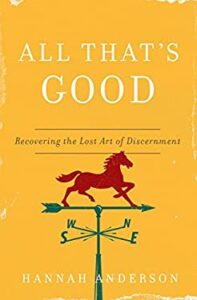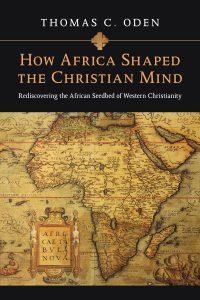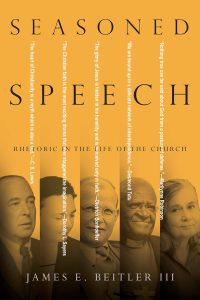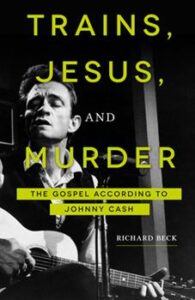 Summary: Discernment is a spiritual gift, something that all Christians should work to develop, and a role of a community of Christian practice
Summary: Discernment is a spiritual gift, something that all Christians should work to develop, and a role of a community of Christian practice
Any regular readers of Bookwi.se probably know that I started a graduate certificate program in Spiritual Direction last fall. I intentionally chose to do my training with a Catholic university because I wanted to challenge my blind spots. Most of the books we are assigned are by Catholic authors, and I often pick up a book by a Protestant author to read in conversation. Because I have previously read All That’s Good, I knew it would be helpful to read with Weeds Among the Wheat by Thomas Green. Both books are about developing or teaching discernment, but they approach the topic very differently, and the tension between that difference was constructive.
All That’s Good is the third book in a trilogy of books about discipleship. Weeds Among the Wheat is a manual for Spiritual Directors to teach and partner with their directees in discernment. For the average person, I would recommend All That’s Good as the better book to read, both because it is targeted at a more general reader and because it is full of stories and illustrations that are more applicable to the average person.
I think what is most helpful about All That’s Good is that 1) Anderson views discernment as a practice to be developed, 2) for judgment to be fruitful, we need to know not just what is wrong but, even more importantly, what is right, and 3) that the tough thing about discernment is that often we are choosing not between what is right and wrong but from a range of things that are themselves are good, but attempting to find what is best right now.
Both Anderson and Green approach developing discernment as essential to developing maturity. Anderson talks about helping her children learn to shop, not based on impulse, but a range of issues including need, quality, goodness, etc.. Green draws on Paul’s illustration in I Cor 3 of trying to move people toward solid food and away from milk. And Anderson says, “In other words, you develop discernment by becoming a person who knows how, not simply what, to think.” Both authors view discernment as moving from simple rules toward a more mature and nuanced understanding of ethics and discipleship.







